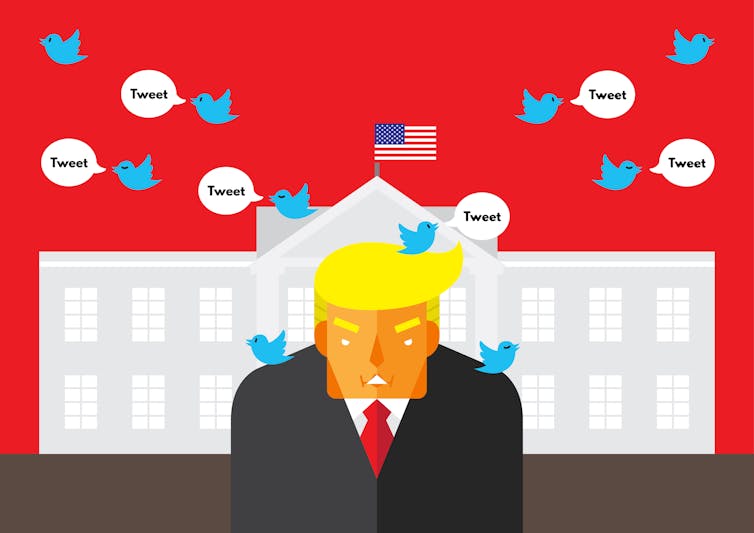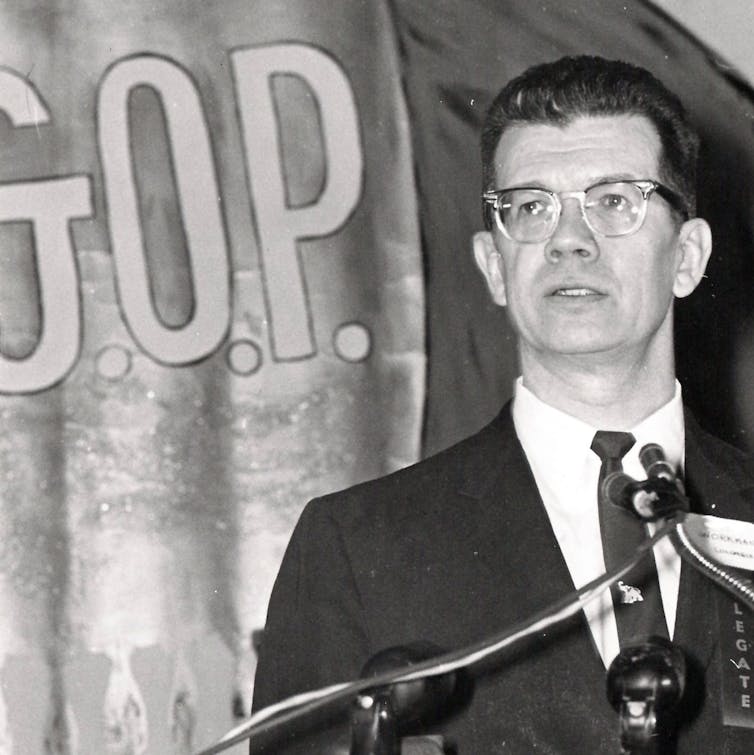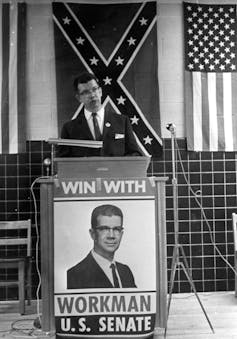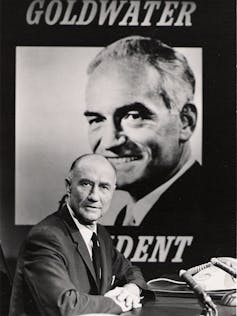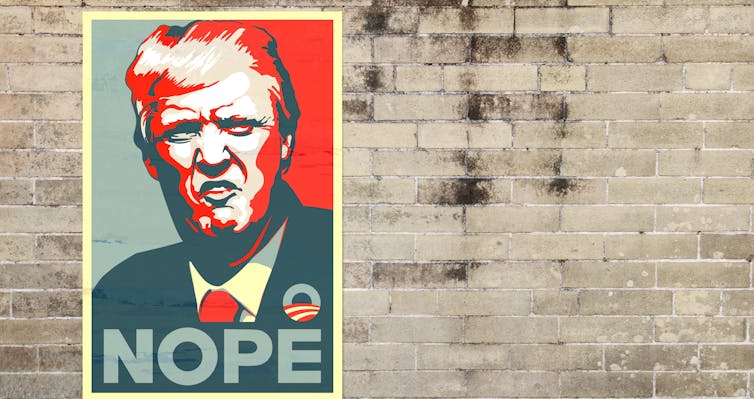While at The Cake House, Billie Piper alongside the café owner, Lorenzo Khan helped out, baking and icing cakes to encourage everyone to get out there and support Small Business Saturday.
Lorenzo has owned the café for over 15 years making it an integral part of the community in which Billie and many others live.
"I've been coming to The Cake House - daily! - since I moved to the area. I live locally and absolutely love the relationships with people in what feels like a village. I want my kids to know people in the community and be able to come into The Cake House and ask for their ridiculous desert requests! I come to The Cake House all the time and Lorenzo has managed to get my daily coffee order down from three shots to two which, in fairness, took quite some doing."
Billie Piper
Small Business Saturday sees thousands of small businesses all over the country take part every year since its inception. According to research undertaken by American Express, founder of Small Business Saturday, last year a total of over £717 million pounds was spent by shoppers on this particular day.
⏩ 3,610 UK adults were polled by Toluna between 8pm on Saturday 3rd December 2016 and 8am on Monday 5th December 2016.
Billie Piper partnered with American Express to celebrate the United Kingdom's thriving small independent businesses, such as The Cake House, to encourage shoppers to go out and 'shop small' this weekend.
"I was delighted when Amex asked me to help support this year's Small Business Saturday. They actually read about me talking about local businesses that I'm passionate about in my local press and decided to contact me to get involved. Independent retailers across the UK offer so much more to a community than just a shop - and that is something I really care about."
Billie Piper
Q&A with Billie Piper:
(Courtesy of Small Business Saturday)
 |
| Billie Piper with cakes... (PRNewsfoto/Small Business Saturday) |
Q: Why do you think it’s important to support Small Business Saturday?
A: “Because small businesses are amazing! They really are the unsung heroes of communities and the high street. When Amex approached me to support Small Business Saturday I jumped at the opportunity, I am a true believer in shopping small and local. Plus it’s Christmas, so if you want a gift that’s really special, then hunt around your local small businesses, especially this weekend. And that goes for food shopping too; small businesses are brilliant for advice and ideas on how to ‘do’ Christmas”.
Q: Billie Piper Why did you choose to drop in to The Cake House ahead of Small Business Saturday?
A: “I’ve been coming to The Cake House since I moved to the area. I’ve always loved local businesses that I can walk to, and when The Cake House opened, I was there like a flash. It’s so nice having Lorenzo in the area, he’s a total star and he makes a mean cake. His passion is so inspiring”.
Q: Billie Piper Any dessert traditions for Christmas day?
A: “Sherry trifle!”
Q: Billie Piper Small Business Saturday is an initiative to encourage people to get out and shop small. What do you think independent retailers contribute to a local community?
A: “Independent retailers who live & work locally, really are the glue that holds a community together. There’s a lovely vibe to Lorenzo’s. He says that his ‘mission’ was to make his business feel like it’s an extension of everyone’s living room and that’s 100% what he’s achieved, it’s so relaxed. My Mum goes there all the time too.”
Q: Billie Piper What are your other favourite independent retailers?
A: “There are so many that I love, particularly around my local community, but besides The Cake House & Lorenzo – there’s Frost on Bellenden Road in Peckham; a fantastic Mid-century furniture store which also specializes in art, antiques and utterly brilliant rarities and I always find a unique treasure there; and, Libreria in East London, an independent book store – it’s so beautifully set up, you can spend hours in there and find something truly beautiful”.
Q: Billie Piper How do you think what you are doing will help to support Small Business Saturday?
A: “Honestly I just hope that people think about all the brilliant small businesses out there. I hope that by working with AMEX as a Shop Small Ambassador, we can encourage people all over the UK to see that all these independent retailers offer so much more to a community that just being ‘a shop’. By supporting local, independent businesses - you’re investing in your local community which is brilliant”.
Q: Billie Piper Have you started your Christmas shopping and what are the Billie Piper family Christmas traditions?
A: “Yes I have actually. As for traditions, there’s always a proper prawn cocktail for starter on Christmas Day, and always the Queen’s Speech on telly – live, never recorded!”
Q: Billie Piper If you could have your own independent retailer, what would it be? Where would it located?
A: “A florist underneath my house has always been my dream!”
Q: Billie Piper Are you working on any projects next year which you’d like to share?
A:“I’m going to perform “Yerma” in New York, Spring of next year and after that I will direct and star in an independent film that I’ve also written, so that’s incredibly exciting”.
 |
| Billie Piper as Rose Tyler in Doctor Who (image via LoupDargent.info) |
About Billie Piper:
Actress Billie Piper recently won six Best Actress Awards, including the highly prestigious Olivier Award for her phenomenally reviewed starring performance in the title role of Simon Stone's sold out adaptation of Yerma at The Young Vic. She is going with the production to The Armory in New York in Spring 2018.
She is much beloved from our television screens with highly celebrated performances in Showtime's Penny Dreadful, Doctor Who for the BBC, the Philip Pullman series of The Shadow of the North and The Ruby in the Smoke for the BBC.
About Small Business Saturday:
Small Business Saturday is a grassroots initiative encouraging people to show their support for small businesses by shopping small.
First conceived by American Express in the U.S. in 2010, where it has become a key date in the shopping calendar, it has received widespread backing from numerous organisations and personalities.
Now in its fifth year in the UK, Small Business Saturday UK 2017 (2nd December) aims to build on the success of previous years.
As founder of Small Business Saturday in the U.S., American Express is principal supporter of the campaign in the UK, encouraging people to make the most of their small, local, independent shops and businesses.
Actress Billie Piper recently won six Best Actress Awards, including the highly prestigious Olivier Award for her phenomenally reviewed starring performance in the title role of Simon Stone's sold out adaptation of Yerma at The Young Vic. She is going with the production to The Armory in New York in Spring 2018.
She is much beloved from our television screens with highly celebrated performances in Showtime's Penny Dreadful, Doctor Who for the BBC, the Philip Pullman series of The Shadow of the North and The Ruby in the Smoke for the BBC.
About Small Business Saturday:
Small Business Saturday is a grassroots initiative encouraging people to show their support for small businesses by shopping small.
First conceived by American Express in the U.S. in 2010, where it has become a key date in the shopping calendar, it has received widespread backing from numerous organisations and personalities.
Now in its fifth year in the UK, Small Business Saturday UK 2017 (2nd December) aims to build on the success of previous years.
As founder of Small Business Saturday in the U.S., American Express is principal supporter of the campaign in the UK, encouraging people to make the most of their small, local, independent shops and businesses.
 |
| Billie Piper helps bake cakes at her local favourite shop, The Cake House in London (PRNewsfoto/Small Business Saturday) |
SOURCE: Small Business Saturday
Bonus Videos:




